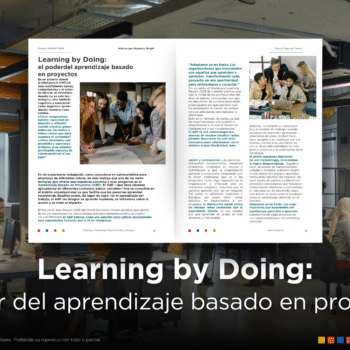The competition to attract and retain the best young talent has never been fiercer. In an increasingly dynamic work environment, companies can no longer rely solely on competitive salaries or traditional benefits. To win over the new generation of workers, organizations must offer something deeper: meaningful work.
What truly attracts and engages young talent today?
According to the recent Future Ready: Reimagining Meaningful Work for Young People report by World YMCA and Deloitte, based on surveys of over 10,000 young people in 120 countries, young people are looking for more than just a job. They want roles that provide purpose, align with their values, and enable both personal and professional growth.
Key Trends That Attract Young Talent
1.Purposeful Work and Shared Values
Purpose has shifted from being an abstract concept to a decisive factor for young people. According to the report, 42% of young people believe that working in an organization with a clear purpose that aligns with their values is crucial for job satisfaction. This means companies must be transparent about their missions and ensure their actions reflect their principles.
For example, environmental sustainability and social responsibility are increasingly important to the new generation. According to the Deloitte Global 2024 Gen Z and Millennial Survey, 86% of Gen Z members believe that purposeful work is essential to their well-being and job satisfaction. Companies that prioritize these aspects not only attract top talent but also inspire greater engagement among their employees.
To ensure that purpose and shared values drive engagement, it’s essential to assess motivators or driving forces from the recruitment process. Reliable tools can help evaluate whether a company’s values resonate with those of the candidates. This improves alignment, increases satisfaction, and reduces turnover, attracting employees genuinely committed to the organization’s mission.
2.Skill Development and Growth Opportunities
For young people, professional development is a top priority. 74% of those surveyed indicated that they seek jobs offering opportunities to gain new skills and advance their careers. This means companies must create environments where employees can learn and grow consistently, whether through mentoring programs, continuous training, or challenging projects that expand their competencies.
Not providing growth opportunities is a recipe for high turnover. Young workers who feel they are not developing tend to seek other opportunities that offer tangible progress. Therefore, companies should design personalized training programs tailored to the needs and aspirations of each professional. This can include individualized learning paths, access to specialized courses, and opportunities for rotation across different areas of the organization. By offering a flexible, growth-centered approach, companies foster engagement and create an environment where young professionals see a clear future within the organization.
3.Flexibility and Work-Life Balance
Another trend gaining traction is the demand for work flexibility. 37% of young people surveyed mentioned that the possibility of having flexible hours is a key factor in their job satisfaction. Younger generations value work-life balance and look for employers who understand the importance of having time for their interests outside of work.
Offering options such as remote work or flexible hours not only attracts young talent but also improves engagement and productivity, creating a more inclusive and adaptable environment.
However, for these flexibility policies to be effective, it is crucial for leaders to stay updated and trained. Well-informed leadership, adapted to new work dynamics, can better manage teams, promoting a flexible and productive environment. This ensures leaders not only understand the needs of young talent but are also capable of implementing innovative solutions that benefit everyone.
4.Holistic Well-being at Work
Mental and physical health are also crucial aspects for young people.
Initiatives promoting mental well-being, such as access to counseling or corporate wellness programs, not only improve employees’ quality of life but also boost their engagement with the organization.
According to the report, workplaces prioritizing holistic well-being see a 25% increase in productivity, demonstrating that investing in employees’ well-being benefits both the company and its workforce.
In this context, leaders must take an active role in offering personalized mentoring and coaching. These interactions allow them to identify and address the specific needs of each employee, providing close support that enhances both well-being and performance. Leadership committed to professional guidance generates greater loyalty and engagement within the organization.
How to Engage Young Talent
Attracting talent is only the first step. Engaging these workers and ensuring they want to stay with the organization long-term requires clear strategies. The report proposes 12 Standards of Meaningful Work, offering a practical framework for designing more attractive and engaging work environments. These include:
- Ethical and Transparent Work: Young people expect companies to operate ethically and responsibly. Organizations must ensure a work environment where transparency and accountability are valued.
- Inclusive and Diverse Work: Inclusion is a priority for young people. They want to work in places that value diverse ideas, cultures, and perspectives. Companies that foster an inclusive environment are more successful at attracting and retaining diverse talent.
- Fairly Rewarded Work: 46% of young people consider fair wages and benefits essential for a positive work experience. In addition to competitive salaries, offering incentives based on performance and impact is an effective way to reward hard work and foster engagement.
- Balanced Work: An environment that allows employees to balance their work and personal responsibilities is key to maintaining long-term engagement. Companies that offer flexible options and respect their employees’ personal time are seen as desirable employers.
Leverage Trends to Attract and Engage
Young talent is seeking more than just a paycheck; they want meaningful work. Companies that understand these trends – from offering purpose and development to ensuring well-being and flexibility – will not only attract the best young talent but also foster long-term commitment and loyalty.
The future of work depends on our ability to adapt to the expectations of new generations. Adopting an approach that prioritizes personal growth, purpose, and well-being will not only benefit young workers but also drive your company’s success.
It’s time to align your practices with what truly attracts and engages young talent.
Sources and Study Downloads:








